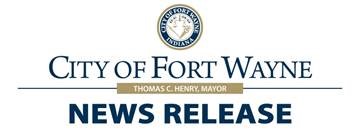For Immediate Release: April 21, 2023

Mayor Henry Makes Climate Action a Priority with Greenprint Initiative
Fort Wayne, Ind. – Taking action for a brighter tomorrow, Mayor Tom Henry today launched the initial phase of Sustaining Fort Wayne. The plan is specially formulated to address the impact of changing weather and climate on Fort Wayne residents.
At the core of Sustaining Fort Wayne is the Climate Action and Adaptation Plan. This working document pulls together and assesses the current status of City of Fort Wayne initiatives that address climate issues. It also sets up a monitoring system to ensure progress and anticipates the addition of further actions as the climatic situation continues to unfold.
The initiative focuses on climate mitigation, adaptation, and resiliency to protect public health, maintain quality of life, and support job creation and economic development.
“Sustaining Fort Wayne is an innovative effort that will position our community to make continued and meaningful progress in our stewardship of the environment and our work to improve the lives of residents as our environment changes,” said Mayor Henry. “Our Climate Action and Adaptation Plan will help ensure Fort Wayne is sustainable for today and future generations.”
Supporting the plan is extensive scientific study. Research shows that Fort Wayne residents are aware of climate change. The Hoosier Life Survey conducted by Indiana University found that 68 percent of City residents say climate change is happening.
Whether it’s clean water, clear air, or equitable and sufficient resources, Sustaining Fort Wayne aims to prepare the community to address environmental changes in ways that offer opportunities for Fort Wayne to grow and succeed.
Today’s announcement covers the inaugural phase of the plan. Its development involved partnering with Indiana University’s Environmental Resilience Institute, employing its readiness assessment. The evaluated areas include the Built Environment, Economic Development, Emergency Management, Energy and Public Utilities, Food and Agriculture, Natural Resources, Planning, Land Use, and Public Health and Safety.
The findings revealed how City Departments mitigate, adapt and show resiliency in the face of climate change. Some City programs already in place are showing significant progress in reducing greenhouse emissions. Turning waste into power at the sewer plant, building more trails to minimize motor vehicle trips, converting traffic signals to LED lights that last longer, and reducing maintenance truck trips and idling for repairs are examples of the City’s proactive efforts to address these issues.
The plan identifies numerous improvement opportunities still unrealized. To that end, this initial phase of Sustaining Fort Wayne calls for more than 90 action items. A full report is available at the website sustainingfortwayne.org
Yet this year, the City Administration will ask City Council to approve funding of $250,000 to move Sustaining Fort Wayne forward.
Additional activities will include outreach and community meetings for residents across the City, establishing a working group, staffing resources, and expanding measurement tools to analyze progress and determine developing needs.





